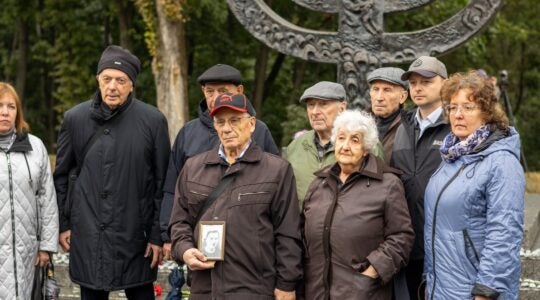BUENOS AIRES, Argentina (JTA) — The Argentinian prosecutor in the AMIA Jewish center bombing case accused Iran of building clandestine intelligence stations in South American countries from which to launch terror attacks.
Prosecutor Alberto Nisman’s office made the accusations in a 502-page indictment released Wednesday that blames Iranian officials for the July 18, 1994 attack on the AMIA center, which killed 85 and injured hundreds.
The indictment said the intelligence stations were established to sponsor, foster and execute terrorist attacks in order to export the Islamic revolution. Identical intelligence bases and centers were discovered in Brazil, Paraguay, Uruguay, Chile, Colombia, Guyana, Trinidad and Tobago, and Suriname.
According to the indictment, the intelligence and terrorist network that struck the AMIA Jewish center was nearly successful in an attempt to blow up the John F. Kennedy International Airport in New York. The bid was thwarted, however, and the plotters were arrested and later sentenced to life terms in prison.
Nisman offered new and corroborating evidence implicating the highest authorities of Iran in the AMIA bombing. The indictment stresses the higher degree of responsibility that Mohsen Rabbani, a former Iranian cultural attache, had not only in the attack, but also as a coordinator of the Iranian infiltration in South America.
According to Nisman, Rabbani spread his activities to Guyana through his disciple, Abdul Kadir, a former Guyanese lawmaker who was among those imprisoned for the attempted attack on Kennedy Airport. Kadir was trained and supported by Tehran, the indictment said, and was arrested while boarding a plane for Iran.
The indictment said the Iranian regime organized a 1982 seminar in Tehran on the subject of the “Ideal Islamic Government” that was attended by some 380 religious men from 70 countries. The meeting was a turning point in the regime’s method of exporting the revolution, which included the use of violence and terrorism.
In the years following the seminar, the indictment said, Rabbani and Kadir were among the many high-level appointments that were made of leaders to infiltrate the South American countries.
JTA has documented Jewish history in real-time for over a century. Keep our journalism strong by joining us in supporting independent, award-winning reporting.





